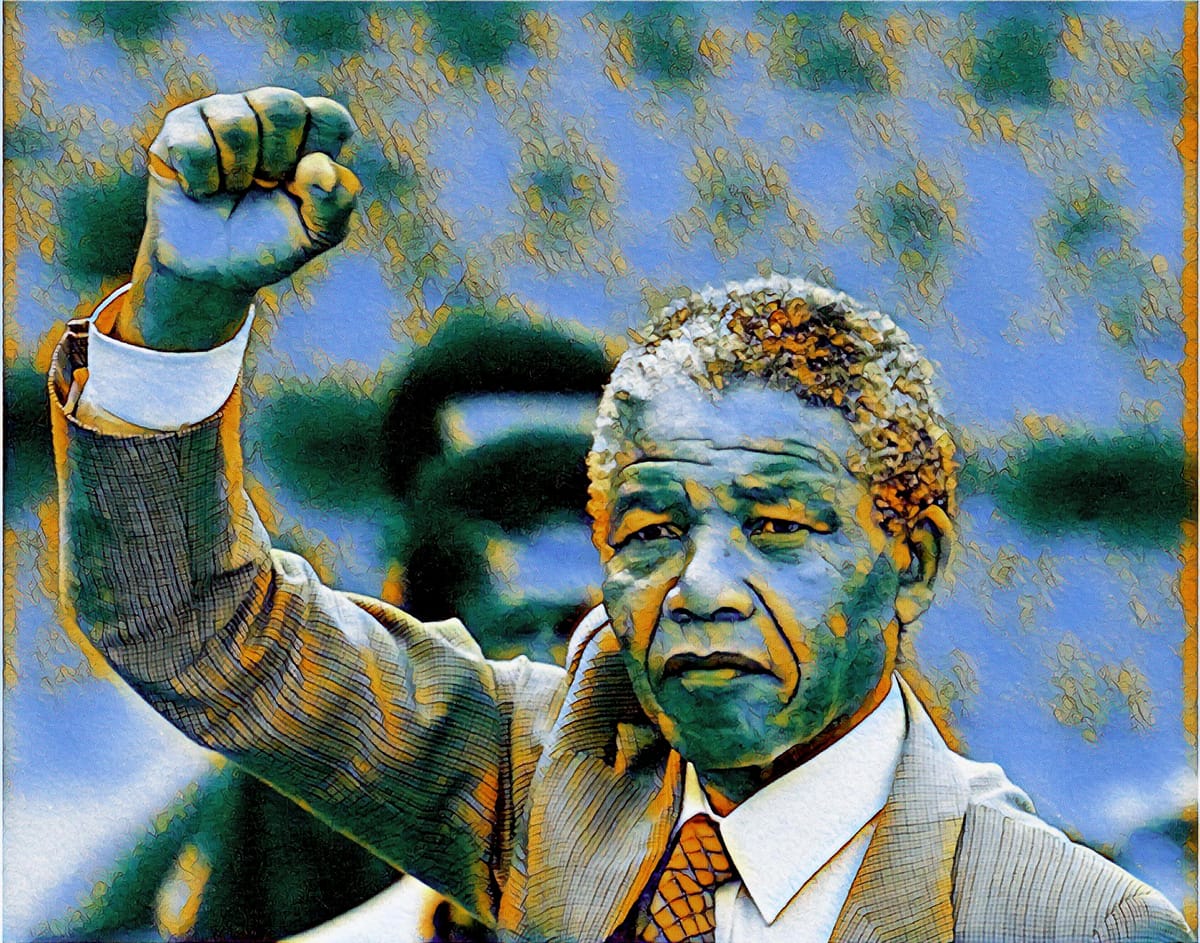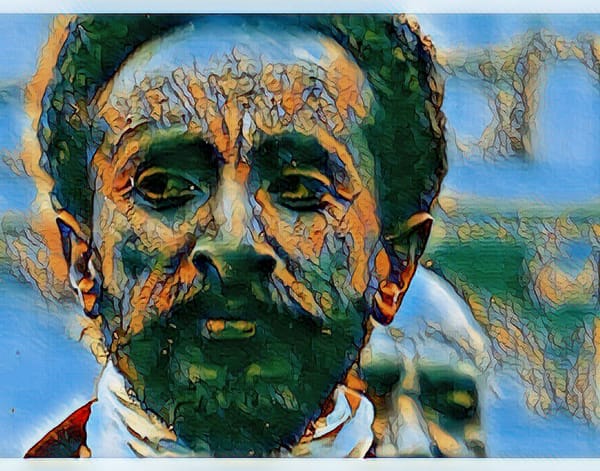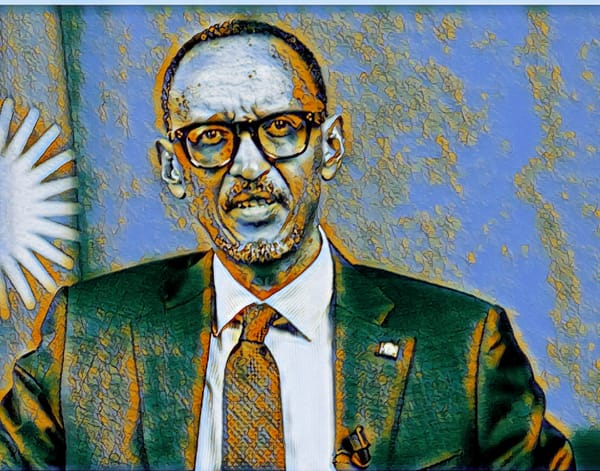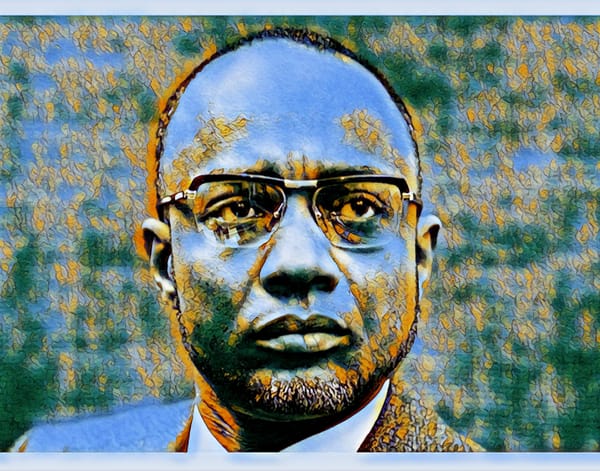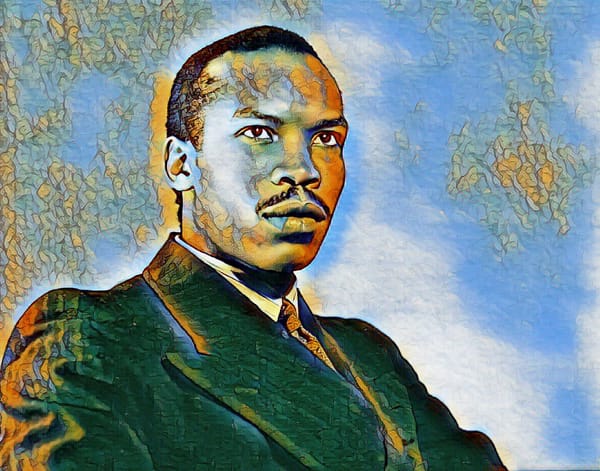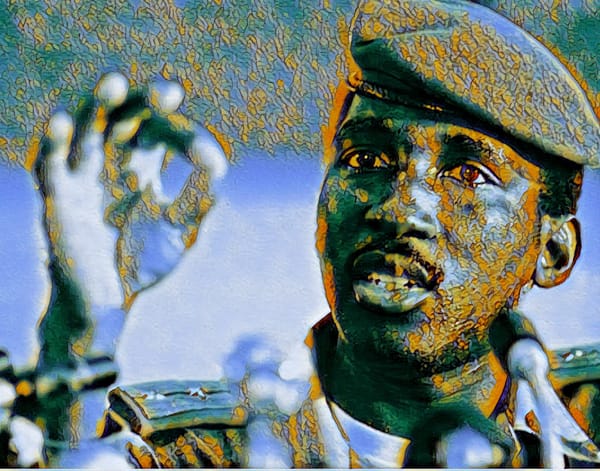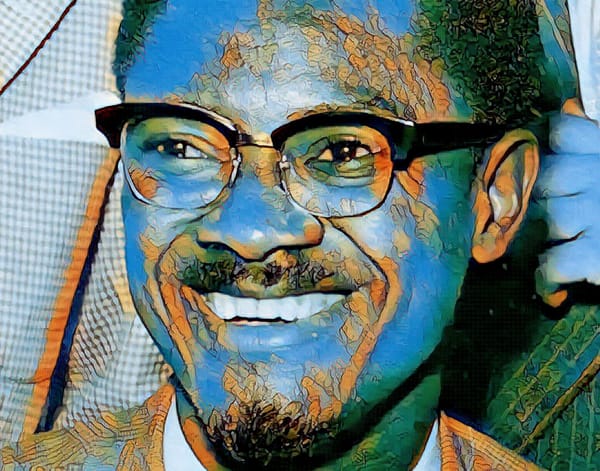Conscience Of A Nation

The Dangerous Normality Of Society
In the towns and cities of South Africa, the landscape was a stark testament to this segregation. Predominantly, people of European descent lived in the most developed and lush areas, while Africans, those of Indian heritage, and mixed ethnicities were uprooted like unwanted weeds from their homes, and herded into segregated, overcrowded townships with deplorable living conditions. These townships were not neighbourhoods, they were open-air prisons, where hope was a rare commodity, and the daily struggle for basic livelihood was a relentless battle.
But, apartheid's cruelty was not limited to where people lived. It was in the very air they breathed. The marginalised communities were under constant surveillance. Being subjected to routine harassment and violence from the state. The pass laws, a cruel tool of control, restricted their movement. Failure to produce a pass could result in harsh punishments, including arrests and fines. The enforcers of apartheid did not hesitate, fear, intimidation and the use of brutal force were their weapons; leading to countless instances of abuse, torture, and even killings.
"Reconciliation does not mean forgetting or trying to bury the pain of conflict, but that reconciliation means working together to correct the legacy of past injustice". - Nelson Mandela
As we stand at the crossroads of the past and the present, history's harsh lessons reveal a haunting truth: societal norms are often dangerously flawed. In these defining moments, can we truly afford the luxury of being 'normal'? Are we willing to wear the blindfold of conformity and go with the flow, upholding the status quo? Indeed, one cannot help but wonder; what subtle yet barbaric ideologies could still be lurking around in our society today, disguised as truth?
The ‘Trouble Maker’ Arrives
On a day graced by the radiant African sun, the rolling hills of the Eastern Cape were witness to a moment that would rewrite history. It was July 18, 1918, when a child named Rolihlahla, Madiba Mandela was born.

Mandela's childhood unfolded in the serene rural landscape of Mvezo, where the natural beauty of the Eastern Cape served as his playground. His days were filled with the simple yet meaningful tasks of village life, tending to cattle, sheep, and horses—a rite of passage for the boys of Mvezo.
It was within this pastoral setting that Mandela began to absorb the essence of his heritage, learning the customs and traditions of the Xhosa, Thembu people. His father, a respected Xhosa chief, imparted to young Mandela the values of leadership, the importance of education and the principles of honour and duty. His mother on the other hand was his confidant. She possessed a unique mastery of language – the language of compassion, empathy, and boundless love.
Tragedy, however, cast its shadow early in Mandela's life. At the tender age of 12, he faced the profound loss of his father, an event that would pivot the direction of his life's journey. In alignment with his father's wishes, Madiba was lovingly embraced by the Thembu regent, Jongintaba Dalindyebo, marking the beginning of a new chapter.
The Steerings Of Destiny
In the tender years of his youth, Madiba left the familiarity of his village, embarking on a voyage that would, unknown to him at the time, forever alter the course of history. It was in Johannesburg, far from the comforting embrace of his childhood home, that he encountered the unadulterated horrors of apartheid.
Against all odds, Mandela rose to become a lawyer in South Africa, breaking through the barriers of a system designed to suppress African ambition and potential. His journey to becoming a lawyer was fraught with challenges, yet he persevered— fueled by his profound desire to be a beacon of justice and equality for his people. Alongside his friend and comrade, Oliver Tambo, Mandela opened the first African law firm in South Africa, a bold move that defied the very foundations of the oppressive system.
"Education is the most powerful weapon which you can use to change the world". - Nelson Mandela
This firm was not just a legal practice; it was a fortress of hope, a symbol of resistance against the tyranny of apartheid, offering a glimmer of justice to those who had been long denied.

Within the walls of Mandela and Tambo's law firm, Mandela sharpened his skills as a lawyer and as a leader. He stood as a voice for the voiceless, challenging the colossal injustice of apartheid in the courts. But this path of defiance came at a cost. Mandela's unwavering pursuit of justice made him a target of the apartheid regime, subjecting him to constant surveillance, harassment, and threats to his life. But, the more the oppressive regime tried to break him, the stronger Mandela's resolve grew.
A Radical Shift
Initially, Nelson Mandela's aspirations were centred on wielding the law as a tool to uplift his people. However, he soon found himself irresistibly drawn into the heart of political activism. The African National Congress (ANC) had become his ship, guiding him deeper into the raging waters of the struggle against apartheid. Surrounded by like-minded visionaries like Walter Sisulu, Oliver Tambo, and Govan Mbeki, Mandela had found not just allies, but brothers united in a singular, unyielding purpose.
The 1950s and 60s were a tumultuous time in South Africa. As the government tightened its grip with more draconian apartheid laws, Mandela and the ANC intensified their activism. Within the ANC, Mandela's role continued to grow, as did his reputation as a leader of the people. His house in Orlando West became a hub of political discussion and planning. It was here that strategies were formed, alliances built, and the foundations of a more equitable South Africa were laid, brick by brick.
"Do not judge me by my successes, judge me by how many times I fell down and got back up again". - Nelson Mandela
The ANC provided a platform for Mandela to channel his deep-seated dissatisfaction into organised, strategic actions against apartheid. He became instrumental in orchestrating protests, strikes, and campaigns. His initial belief in peaceful resistance was a reflection of his profound faith in the power of civil disobedience to incite change. Through his involvement in the Defiance Campaign and numerous peaceful protests, he envisioned that, by laying bare the inhumanity of apartheid, he would rally the masses and compel the government to embrace reform.
For Mandela and his comrades in the ANC, this massacre was a crossroads in their fight for a free South Africa. Indeed, the path of least resistance beckoned, after all, Mandela, was a successful lawyer with a somewhat promising future. Yet, as they mourned the lives snatched away in Sharpeville, a fire was kindled in their hearts – a blaze of resolve that no ocean of tears could quench.
They were forced to stare even more deeply at the monstrous, violent entity of Apartheid— for over half a century, they had endured and tolerated these barbaric actions of the apartheid regime but no more! Not under their watch! Those innocent lives lost at Sharpeville, will not die in vain. They stood united, their resolve hardened like steel; they were fighting, not just for themselves, but for their sisters, their brothers, their children, and for generations to come.
The Struggle Intensifies
In the dark shadow of apartheid's escalating violence, a new chapter was written. Umkhonto we Sizwe (Spear of the Nation), the armed wing of the ANC, was born. This marked a seismic shift in the ANC's strategy – a turn from the path of nonviolent resistance to the thorny road of armed struggle. For Nelson Mandela and his comrades, this decision was not made lightly. It was a choice fraught with moral perplexity– a painful acknowledgement that it was the only way left to respond to a government that only showed harshness and cruelty.
Then came July 11, 1963. It was a day that would forever be etched in the memory of South Africa. Undercover agents of the regime descended upon Liliesleaf Farm in Rivonia, a secret place where ANC leaders met. The air was thick with tension as armed police, agents of the regime encircled the property, trapping Nelson Mandela, Walter Sisulu, Govan Mbeki, Ahmed Kathrada, Denis Goldberg, and others in their snare. The raid was quick and took everyone by surprise. The police came in fast, catching the ANC’s top leaders. Documents, plans – the very evidence of their fight against apartheid – were seized.
"For to be free is not merely to cast off one's chains, but to live in a way that respects and enhances the freedom of others". - Nelson Mandela
Arrested and facing grave charges, the reality of their situation was stark. The risk of death loomed large, a grim reminder of the high stakes of their struggle.
Cowards Die A Thousand Times
Amid South Africa’s darkest era, a moment of profound importance was taking place. Nelson Mandela and his comrades walked into the towering Palace of Justice in Pretoria.
If death was to be their destiny, they would meet it not as criminals, but as kings, draped in the nobility and grace of true African warriors, embodying their unwavering commitment to their people and their cause.

Inside the courtroom, the air of tension and anticipation hung heavily. Outside, a sea of supporters and activists, both local and from distant lands, thronged the courthouse. Their presence, a testament to a solidarity that transcended borders, a unified voice against injustice. The world was watching, and the outcome of this trial would resonate far beyond the borders of South Africa.
When Mandela rose to address the court, his voice carried the weight of history. His words were more than a defence; they were a declaration of a lifetime dedicated to the struggle of the African people. He stated:
During my lifetime I have dedicated my life to this struggle of the African people….I have cherished the ideal of a democratic and free society in which all persons will live together in harmony and with equal opportunities. It is an ideal for which I hope to live for and to see realised. But, My Lord, if it needs be, it is an ideal for which I am prepared to die.
His message, laden with conviction and passion reverberated through the courtroom and beyond. This was a fight for an ideal so sacred that he was prepared to lay down his life for it.
As Mandela and his fellow warriors left the courtroom, the heavy doors closing behind them symbolised more than the end of a trial. They closed on men who had stood unflinchingly for a cause greater than themselves, for their families, their people, and for the dignity of all humanity. They were the true embodiment of heroism, their courage and resilience, a beacon of hope in a time of great darkness.
The trial ended with Mandela and his co-accused sentenced to life imprisonment— a fate steeped in despair, but with a flicker of relief as the shadow of the death penalty was lifted. The cold, stark cell on Robben Island paired with relentless, gruelling labour became Mandela's world for 27 years. Yet, within the grim confines of Robben Island, Nelson Mandela's imprisonment had become a potent symbol of defiance, igniting a flame of determination against apartheid that no prison could dim.
Oh, Madiba... We Hold You In Our Hearts
As South Africa wobbled on the edge of chaos, with protests spreading through its heart and international isolation tightening its grip, the winds of change began to stir. The relentless pressure from within and outside its borders made it clear: the era of apartheid was coming to an end. Amidst this turmoil, the once unyielding walls of apartheid began to crumble, setting the stage for a historic transformation.
"Everyone can rise above their circumstances and achieve success if they are dedicated to and passionate about what they do". - Nelson Mandela
On February 11, 1990, a day that would forever shimmer in the annals of history, Nelson Mandela, the heart and soul of South Africa's struggle, emerged from the shadows of years of imprisonment. This day was more than a personal triumph; it was a collective gasp of hope for a nation suffocating under the weight of apartheid's cruel hand.
As Mandela stepped into the glowing warmth of the morning sun, leaving behind the bars of 27 years of imprisonment, the world watched in awe. His first steps were like thunderclaps, shaking the very foundations of a nation. Each step resonated with the pain, the dreams, and the unyielding courage of millions who had looked to him as their beacon in the darkest of nights.
His face, etched with the lines of struggle and resilience. And in his eyes shone the wisdom of a sage, the compassion of a leader who had endured unimaginable hardships yet emerged not with bitterness, but with an unwavering commitment to reconciliation and peace.

The air was electric, charged with emotions that words could scarcely capture. Tears flowed freely, not just from those who had gathered to witness this historic moment, but from the very soul of a nation long torn by strife and pain. Mandela's release was not merely the opening of a prison gate, but the unlocking of chains that had bound a nation for far too long.
On The Shoulders Of Giants
In honouring Mandela and his comrades, we are reminded of a profound truth that lies at the heart of Africa – the timeless virtues of love, faith, and courage. Far from being archaic or weak, they are pillars of strength that have stood the test of time, driving humanity forward and igniting the fires of progress and change.
"I am fundamentally an optimist. Part of being optimistic is keeping one’s head pointed toward the sun, one’s feet moving forward. There were many dark moments when my faith in humanity was sorely tested, but I would not and could not give myself up to despair. That way lays defeat and death". - Nelson Mandela
Mandela's life echoes a message across the ages: love's light ultimately outshines the darkest of evils. He stands as a powerful testament that forgiveness is not a sign of weakness, but a mark of profound wisdom. In his story we discover that, our true purpose lies not in dominion over one another, but in serving each other, in uplifting one another and in creating a better world where each person can flourish to their fullest potential.
Few Great Sources
- Documentary- The Long Walk Of Freedom
- Documentary - Mandela: Son of Africa, Father of a Nation
- Wikipedia - Nelson Mandela

